As part of our series of StaffsPsych Graduate Success Stories, we are pleased to introduce Laurna who graduated from our MSc Health Psychology course in 2016 after studying her BSc (Hons) Psychology here at Staffordshire University.
Success Stories, we are pleased to introduce Laurna who graduated from our MSc Health Psychology course in 2016 after studying her BSc (Hons) Psychology here at Staffordshire University.
Find out about Laurna’s experiences at Staffordshire University and her career after completing her Master’s course:
I grew up in Staffordshire and studied down the road at Newcastle-under-Lyme College. I studied Psychology at GCSE and A-Level, and loved the subject so much that completing a psychology degree was a no brainer!
What attracted you to studying Psychology at Staffordshire University?
After my A Level results I entered Clearing. During this uncertain time, I knew that my first choice of potential universities was Staffordshire University. Throughout the clearing process I had an excellent experience talking to the staff in the Psychology Department, and they made the process so easy and straight forward. The helpfulness of the staff, in addition to the open day confirmed my decision that Staffs was for me.
Following my undergraduate degree, completing the Health Psychology Master’s degree at staffs, the home of health psychology, was an easy decision. The excellent teaching staff, with research and practice experience in various areas of Health Psychology affirmed my choice!
What were the best parts of your experience at Staffs?
The whole university experience was great, especially living with my friends and spending many hours in the Ember Lounge and LRV for gobble on a Wednesday night. During the Health Psychology Master’s Degree I was fortunate to be around a bunch of lovely people that over the year became great friends! The highlight of the whole experience was graduating with a First Class honours at undergraduate, and a Distinction at Master’s degree in the Italian Gardens at the Trentham Estate surrounded by my fellow students, friends, and family.
What have you done since leaving Staffs? How did your course help you with this?
During my undergraduate degree, I realised my passion for improving the quality of life of those living with neurodegenerative conditions. I volunteered at a dementia charity during my Master’s degree, and worked as a Clinical Studies Assistant at South Staffordshire NHS Foundation Trust, where I helped with many mental health and neurodegenerative research projects.
Following the Master’s degree I started my PhD in pain for people living with dementia at Keele University. Both my undergraduate and Master’s degree gave me the perfect foundation to start a PhD, both in relation to the research skills that I learnt, but also the encouragement and support provided from my tutors in the Psychology Department.
 What are your plans for the future?
What are your plans for the future?
Following the PhD, I wish to work on research projects in the domain of health psychology, focusing upon those living with a neurodegenerative condition. At the moment however, I intend to focus on my PhD!
What advice would you give to someone thinking about applying to study Psychology at Staffordshire University?
I would advise to all of those that are interested in either a psychology degree or health psychology Master’s degree should attend one of the Staffordshire University open days. This day will allow you to talk to the psychology staff, and look at the facilities on offer.
Staffordshire University – The Home of Health Psychology
Staffordshire University has a history of excellence  in teaching and research in Health Psychology, and is home to Staffordshire’s BPS Accredited Stage 1 MSc in Health Psychology and Stage 2 Professional Doctorate in Health Psychology. The Staffordshire Centre for Psychological Research has active team of Health Psychologists who conduct research and provide consultancy in a range of health-related issues.
in teaching and research in Health Psychology, and is home to Staffordshire’s BPS Accredited Stage 1 MSc in Health Psychology and Stage 2 Professional Doctorate in Health Psychology. The Staffordshire Centre for Psychological Research has active team of Health Psychologists who conduct research and provide consultancy in a range of health-related issues.
Keep updated with the latest Health Psychology news from Staffordshire University via following us on @StaffsPsych and via the #HealthPsychStaffs hashtag.
For further information about Health Psychology courses and research at Staffordshire University please visit the following webpages:










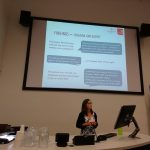

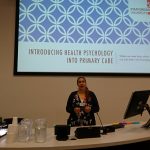






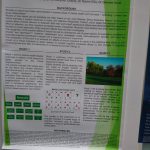

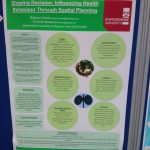
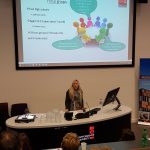

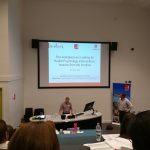
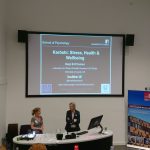

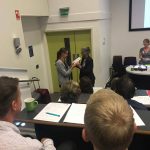

 Skills Specialist in the Psychology Department at Staffordshire University, has won a National Award in recognition of her excellent contribution to teaching!
Skills Specialist in the Psychology Department at Staffordshire University, has won a National Award in recognition of her excellent contribution to teaching! The
The 


 centre of excellence for teaching and research in Health Psychology, and is home to Staffordshire’s BPS Accredited Stage 1
centre of excellence for teaching and research in Health Psychology, and is home to Staffordshire’s BPS Accredited Stage 1






